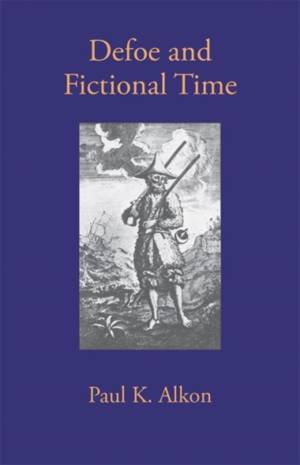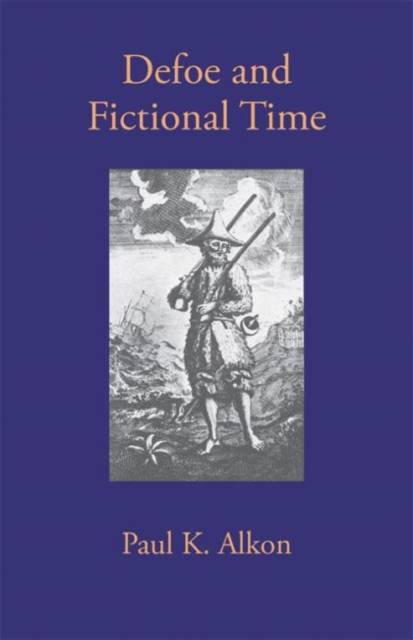
Bedankt voor het vertrouwen het afgelopen jaar! Om jou te bedanken bieden we GRATIS verzending (in België) aan op alles gedurende de hele maand januari.
- Afhalen na 1 uur in een winkel met voorraad
- In januari gratis thuislevering in België
- Ruim aanbod met 7 miljoen producten
Bedankt voor het vertrouwen het afgelopen jaar! Om jou te bedanken bieden we GRATIS verzending (in België) aan op alles gedurende de hele maand januari.
- Afhalen na 1 uur in een winkel met voorraad
- In januari gratis thuislevering in België
- Ruim aanbod met 7 miljoen producten
Zoeken
Omschrijving
Defoe and Fictional Time shows Defoe's relevance to issues now central to criticism of the novel; relationships between narrative time and clock time, the influence of time concepts shared by writers and their audience, and above all the questions of how fiction shapes the phenomenal time of reading. Paul K. Alkon offers first a study of time in Defoe's fiction, with glances at Richardson, Fielding, and Sterne; and second a theoretical discussion of time in fiction. Arguing that eighteenth-century views of history account for the strange chronologies in Captain Singleton, Colonel Jack, Moll Flanders, and Roxana, Alkon explores Defoe's innovative use of narrative sequences, frequency, spatial form, chronology, settings, tempo, and the reader's cumulative memories of a text. Defoe's Journal of the Plague Year is the first portrayal of a public duration--passing time shared by an entire population during a crisis--ranking Defoe among the most creative writers who have explored the way in which fictional time may influence reading time.
Specificaties
Betrokkenen
- Auteur(s):
- Uitgeverij:
Inhoud
- Aantal bladzijden:
- 290
- Taal:
- Engels
Eigenschappen
- Productcode (EAN):
- 9780820337715
- Verschijningsdatum:
- 1/08/2010
- Uitvoering:
- Paperback
- Formaat:
- Trade paperback (VS)
- Afmetingen:
- 140 mm x 216 mm
- Gewicht:
- 371 g

Alleen bij Standaard Boekhandel
+ 112 punten op je klantenkaart van Standaard Boekhandel
Beoordelingen
We publiceren alleen reviews die voldoen aan de voorwaarden voor reviews. Bekijk onze voorwaarden voor reviews.









